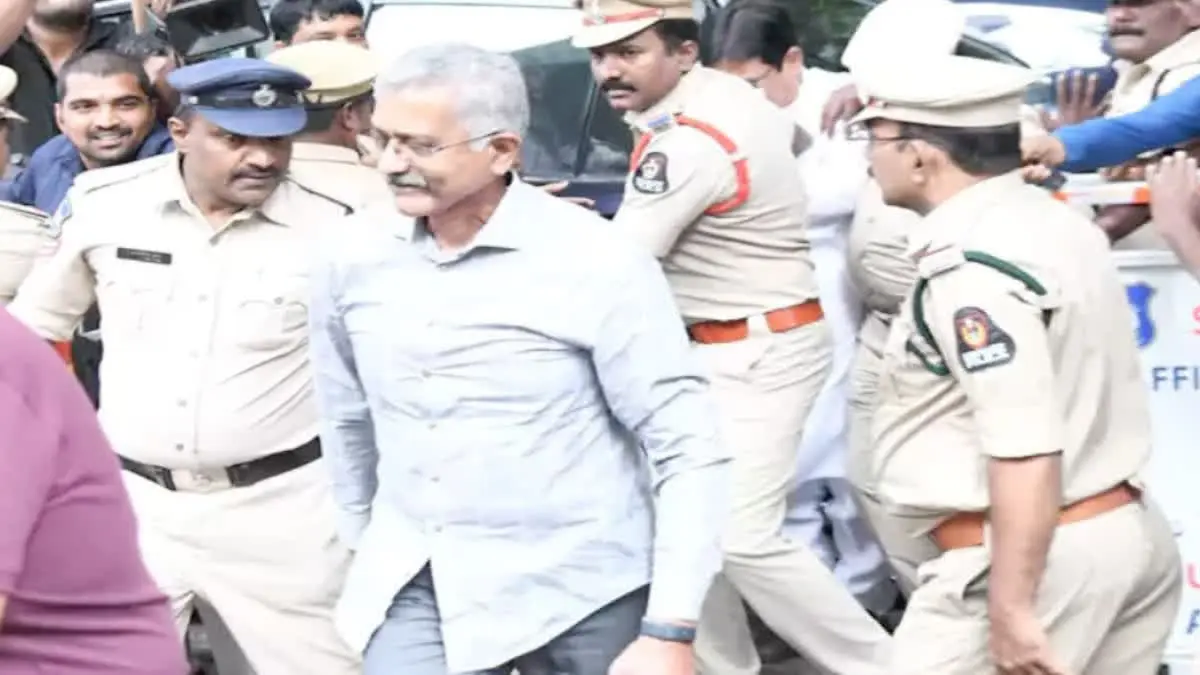
The Telangana phone tapping case has taken a darker turn as aides of political leaders were also found to be under illegal surveillance during the BRS regime
Surveillance State: How Deep Did the Wiretaps Go?
Telangana Surveillance Scandal – What began as whispers of political espionage has now erupted into a full-blown scandal. The Telangana phone tapping case, initially believed to target opposition leaders during the Bharat Rashtra Samithi (BRS) regime, has revealed a far more invasive operation. According to the Special Investigation Team (SIT), not only were senior leaders like A. Revanth Reddy and Bandi Sanjay under surveillance, but so were their personal aides, family members, and close associates.
Table of Contents
The SIT’s ongoing probe has uncovered that the Special Intelligence Bureau (SIB), under the leadership of suspended DSP Praneeth Rao and allegedly directed by former SIB chief T. Prabhakar Rao, created a covert “Special Operations Team” to carry out unauthorized surveillance. This included obtaining Call Detail Records (CDRs) and Internet Protocol Detail Records (IPDRs) of hundreds of individuals, including a High Court judge and his family.
The surveillance reportedly intensified during the 2023 Telangana Assembly elections, with the aim of tracking opposition strategies, disrupting campaigns, and intimidating dissenters. BJP MP Etala Rajender likened the situation to the Emergency of 1975, calling it a “blatant violation of democracy”.
Aides, Activists, and Families: No One Was Spared
The most disturbing aspect of the revelations is the targeting of non-political individuals. Close aides of BJP leaders, including Praveen Rao, a longtime associate of Union Minister Bandi Sanjay, were informed that their phones had been tapped. Rao, who managed Sanjay’s campaigns and constituency work, was reportedly monitored during protests and public agitations.
Congress leaders, too, have come forward. Singireddy Harivardhan Reddy, a Medchal district Congress leader, alleged that he was detained multiple times based on intercepted calls. Even martyrs’ families, who protested against the BRS government in 2018, claimed their phones were tapped and movements tracked.
The SIT has confirmed that profiles were developed on these individuals, detailing their contacts, routines, and affiliations. This level of surveillance, critics argue, goes beyond political strategy, it borders on state-sponsored intimidation.
Accountability and Aftermath: Will Justice Be Served?
With mounting evidence and public outrage, the Congress-led Telangana government has vowed to bring the perpetrators to justice. TPCC chief Mahesh Kumar has demanded accountability from top BRS leaders, including K.T. Rama Rao and K. Chandrashekar Rao, accusing them of orchestrating the surveillance to cling to power.
So far, six officials have been arrested, including two Additional Superintendents of Police and a former DCP. However, the alleged mastermind, T. Prabhakar Rao, remains absconding. The SIT has filed a charge sheet and is now preparing to summon more political figures for questioning.
Legal experts warn that the case could set a precedent for how India handles digital privacy violations and abuse of intelligence infrastructure. Civil society groups have called for a judicial inquiry and stronger safeguards under the Indian Telegraph Act and IT Act.
Conclusion: Telangana Surveillance Scandal
The Telangana phone tapping case is no longer just a political controversy, it’s a constitutional crisis. As more names emerge and the web of surveillance expands, the scandal underscores the urgent need for transparency, accountability, and reform. In a democracy, power must be checked, not wired into every private conversation.